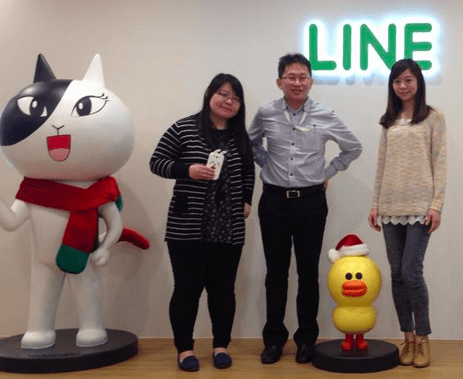AppUniverz Strives for Startup Campus
Translated from: 台灣:AppUniverz 要讓大學校園「創」起來
How capable or brave are twenty-something college students to start their own business? Student startups may be usual in many countries, but it’s not a common or easy task in Taiwan. Under pessimistic social atmosphere, students, even ambitious enough, are forced to choose the less challenging paths, such as postgraduate studies, work in technology parks and public services. Originated from two of top universities in Taiwan, National Tsing Hua University and National Chiao Tung University, the incubator AppUniverz work as an NGO to facilitate ventures on campus.
AppUniverz has an all-star board of directors, including jserv (MediaTek adveiser), Eric Tsai (online music platform KKBox CTO), and Sam Lu (A0soft founder). Officially registered in April 2013, AppUniverz has organized hackathons and other events since 2011 to connect resources from industry, government and academia. I ask its executive secretary Erh-Fen Kao and marketing specialist Jessie Wu to learn more about their achievements so far.
—–
What’s your major project in AppUniverz this year?
Jessie: We’ll organize hackathons and design application venture & practice courses in both universities. We’ll invite alumni as advisors, sponsors, lecturers and mentors.
Our major event this year will be in summer, similar to a succession plan in enterprise. Teams already have their products or prototypes will spend five to seven days learning required knowledge and capabilities for startups, such as patent, legal affairs, finance, media, marketing, presentation, fundraising and leadership.
What do you aim to achieve?
Jessie: AppUniverz hopes to fill in the gap between campus and ventures.
How eager are students in both universities to run their own business?
Kao: Quite a few alumni from NCTU are famous entrepreneurs, so it’s more popular. Venture Innovation Program is available to students. “Wake up bar” is established to encourage innovative thinking and practice. Yes Co-working Space is set up in technology park nearby to not only offer assistances to startups, but also connect to academic resources. After several years of efforts by Dean (of College of Technology Managemen) Chintay Shih, NTHU recently holds Venture Day. Besides courses such as technology commercialization or high tech venture and operation, it also works with AppUniverz in application venture and practice courses, and organizes Demo Day to showcase student innovation to general public and potential investors.
Jessie: Many alumni are willing to contribute, such as Whoscall (recently acquired by Naver) or Nathan Chiu from cacafly. AppUniverz doesn’t limit services to these two universities. School representatives are available at NCU, YZU and NCKU as well. We start with NCTU and NTHU mostly because of proximity and board of directors composition.
Membership programs are available to students, enterprises and individuals as a platform to connect students and entrepreneurs.

What resources do universities provide?
Kao: They both have incubators, venture courses, alumni organizations and other mechanisms for ventures and fundraising.
Are there barriers between these two universities?
Kao: They are two universities in nature with respective approaches, so it’s more like differences than barriers. NTHU is devoted to academic research, whereas NCTU focuses on venture and practice, but students are well-connected. The founding team of Gogolook, for example, are mainly NTHU graduates, but their initial technical assistance comes from Dr. Chihyu Lin in NCTU.
Which startups have supported AppUniverz?
Kao: Our alumni have supported us extensively in the past few years, such as Light Lin (flyingV), Nathan Chiu (cacaFly), Victor Shen (Ubitus), Mark Sung (Zillians), Wayne Huang (Armorize), Benjamin Lo (Accupass) and Gogolook team (Whoscall).
Do you think it’s possible to develop a venture cluster like Standford University and Silicon Valley?
Jessie: It’s possible. Although job environment is less than ideal in Taiwan, and many students are risk averse, they do have creativities in mind. Creativity and passion should not be dimmed over time. Ventures have more possibilities than conventional career paths, but college education still tends to encourage theory and conservatives. It’s very different from what ventures need.
What are major obstacles?
Kao: Professors are not allowed to start their ventures, and colleges have limited themselves from business collaborations. Many professors ask their students instead to start ventures with their researches. It’s a major challenge to startups when your instructors have no or limited venture experiences to speak off. Traditional collaboration models proposed by National Science Foundation are restricted by too many rules.
Most graduates, under social or family pressure, aim to work in established companies like TSMC or MediaTek. Although these two universities are located in environment similar to Silicon Valley, we haven’t noticed an emerging venture cluster. It takes time to change a culture.
Translated from: 台灣:AppUniverz 要讓大學校園「創」起來











留言討論